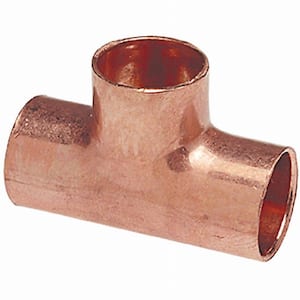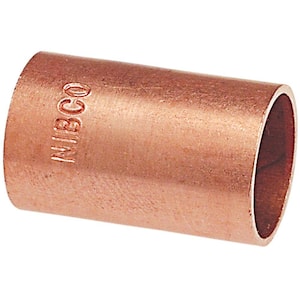Exploring the Diverse Applications of Copper Products in Modern Industries
Copper products have established themselves as crucial elements throughout a myriad of contemporary sectors, mainly because of their impressive conductivity, pliability, and resistance to corrosion. From enhancing the effectiveness of electrical systems to playing an essential function in sustainable energy modern technologies, the flexibility of copper is evident. Furthermore, its recyclability positions it as a sustainable selection in manufacturing and electronics. As markets increasingly prioritize advancement and sustainability, the diverse applications of copper require a closer examination, specifically regarding their prospective influence on future technical advancements and ecological techniques.
Electrical Applications of Copper
Copper is an essential product in the electrical market, representing approximately 60% of the complete demand for non-ferrous metals internationally - Copper Products. Its remarkable electric conductivity, which is nearly twice that of aluminum, makes it the favored selection for a vast array of electric applications. From circuitry systems in industrial and residential structures to high-voltage power transmission lines, copper ensures performance and reliability in power distribution
In enhancement to electrical wiring, copper is essential to the production of electrical components such as generators, motors, and transformers. These elements take advantage of copper's thermal conductivity and malleability, important for warmth dissipation and effective efficiency. Copper's resistance to corrosion boosts the life-span and durability of electrical systems, making it an economical service in the long term.
The growth of renewable resource sources, such as solar and wind power, has even more boosted the need for copper in electric applications. As industries shift in the direction of sustainable power solutions, copper's role ends up being much more important. In general, the versatility and performance qualities of copper solidify its standing as a cornerstone product within the electrical market, driving advancement and performance throughout various applications.
Plumbing and Piping Solutions
In modern pipes systems, the selection of products considerably impacts both capability and durability. Copper has actually become a preferred choice because of its special residential properties, including deterioration resistance and antimicrobial characteristics. These features guarantee that copper piping remains risk-free and long lasting for carrying drinkable water, an important consideration in domestic and industrial applications.
Among the essential benefits of copper in pipes is its ability to endure heats and stress, making it appropriate for a range of applications, from hot water systems to heating and cooling down networks. Furthermore, copper's flexibility permits for much easier installment in complex piping designs, lowering the risk of leaks and failures.
One more noteworthy advantage is copper's lengthy life-span, usually surpassing half a century with appropriate upkeep. This durability not only minimizes replacement expenses yet additionally contributes to sustainable practices by minimizing waste. Additionally, copper's recyclability lines up with modern environmental requirements, advertising a circular economic situation within the plumbing market.
Copper in Renewable Energy
The adaptability of copper expands beyond plumbing applications, playing an important role in the sustainable power field. Its outstanding electric and thermal conductivity makes it a vital product in the production and circulation of renewable energy resources, specifically solar and wind power. In solar panels, copper is utilized in solar batteries and electrical wiring, assisting in reliable power conversion and transmission. Its resistance to rust ensures long-lasting performance, which is essential for making best use of power outcome over time.

Additionally, as the global need for electrical vehicles (EVs) boosts, copper's duty in battery systems and billing infrastructure becomes much more significant. The material's ability to perform electrical power successfully is integral to the efficiency of EV batteries, improving array and billing speed.
Copper's Duty in Electronics
Electronic devices producing counts greatly on copper's phenomenal residential properties, particularly its high electrical conductivity and thermal performance. These qualities make copper an excellent selection for a large range of electronic parts, consisting of connectors, motherboard, and electrical wiring. The metal's ability to effectively transmit electrical signals makes certain very little energy loss, which is vital in high-performance electronic gadgets.
In addition, copper's thermal conductivity plays a significant function in heat dissipation, safeguarding sensitive elements from overheating. This is especially crucial in modern-day electronic devices, where small layouts lead to enhanced heat generation. Copper is also favored for its malleability and ductility, allowing it to be conveniently shaped right into complex layouts that satisfy the needs of advanced electronic applications.
With the surge of consumer electronics, telecoms, and electrical Discover More automobiles, the demand for copper in the electronics market continues to grow. Hence, copper stays a cornerstone material in the ever-expanding area of electronics.
Ingenious Utilizes in Production

One notable application is in additive manufacturing, where copper-based products are utilized in 3D printing processes. This enables the production of light-weight parts and intricate geometries, especially in the aerospace and automotive markets. Furthermore, copper's thermal conductivity makes it an ideal choice for heat exchangers, boosting efficiency in commercial cooling systems.
Moreover, the increase of wise manufacturing has seen the unification of copper in IoT devices, where its conductive capabilities sustain sophisticated picking up innovations. In the realm of eco-friendly energy, copper is essential in the manufacturing of solar panels and wind turbines, assisting in a lot more efficient power conversion and circulation.
As industries pursue sustainability and innovation, copper's versatility and performance remain to position it as an essential material, driving advancements in manufacturing and adding to the advancement of smarter, more effective items.
Conclusion
In summary, copper items demonstrate amazing convenience throughout various modern markets. Copper Products. Their premium conductivity improves electrical applications, while corrosion resistance guarantees integrity in pipes. The integral role of copper in renewable resource and its vital function in electronic devices highlight its relevance beforehand lasting practices. Furthermore, cutting-edge uses in manufacturing more tips here highlight copper's versatility and sustaining significance. Collectively, these applications show copper's crucial contribution to technical development and commercial efficiency in contemporary society.
From boosting the effectiveness of electrical systems to playing a crucial function in sustainable power innovations, the flexibility of copper is obvious. As industries significantly focus on innovation and sustainability, the diverse applications of copper call for a closer evaluation, particularly concerning their possible influence on future ecological practices and technological improvements.
The development of eco-friendly power sources, such as solar and wind power, has actually even more boosted the demand for copper in electrical applications. Generally, the convenience and performance characteristics of copper strengthen its condition as a cornerstone material within the electrical field, driving development and effectiveness throughout different applications.
The flexibility of copper extends past pipes applications, playing a crucial role in the renewable power field.